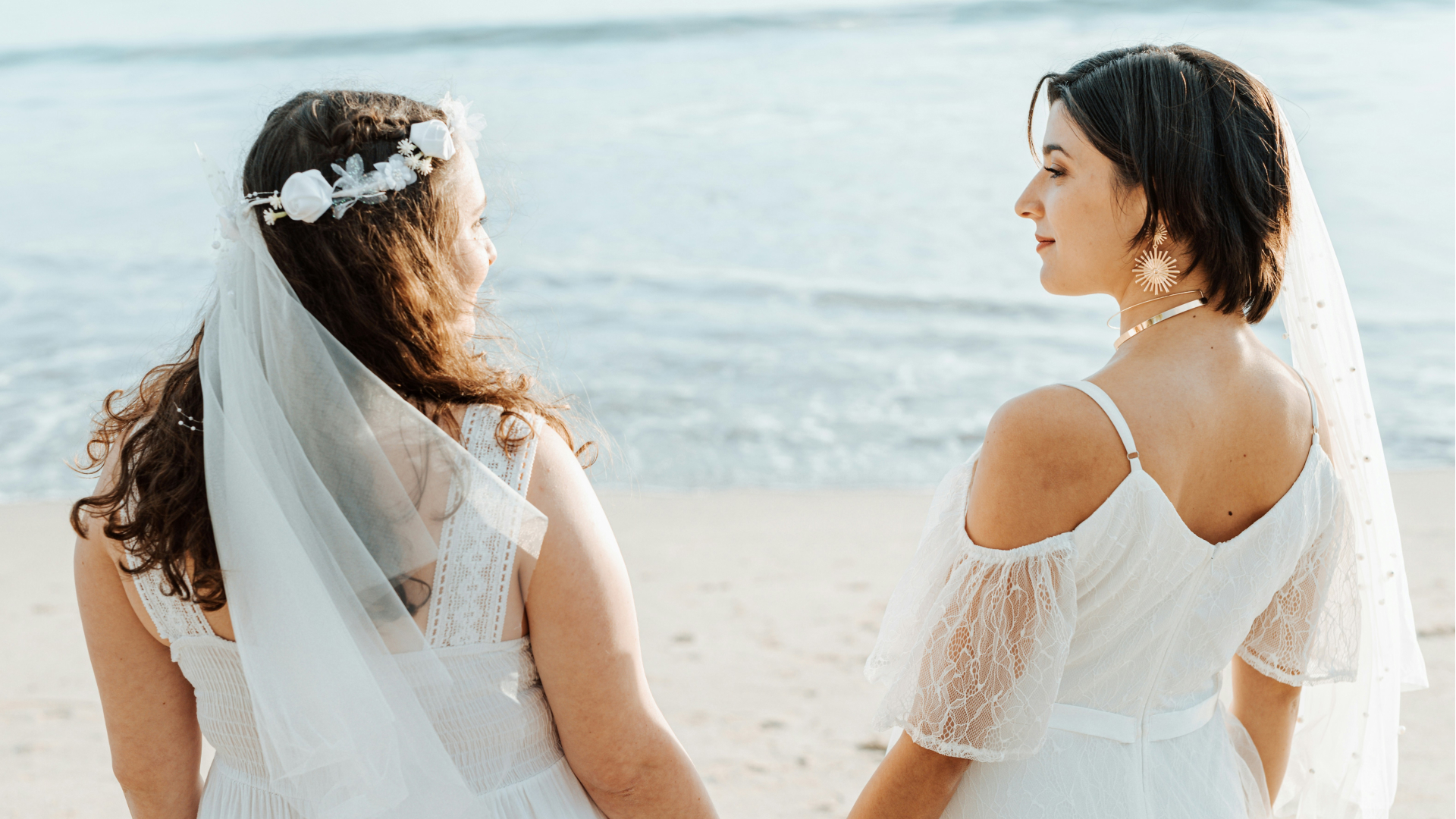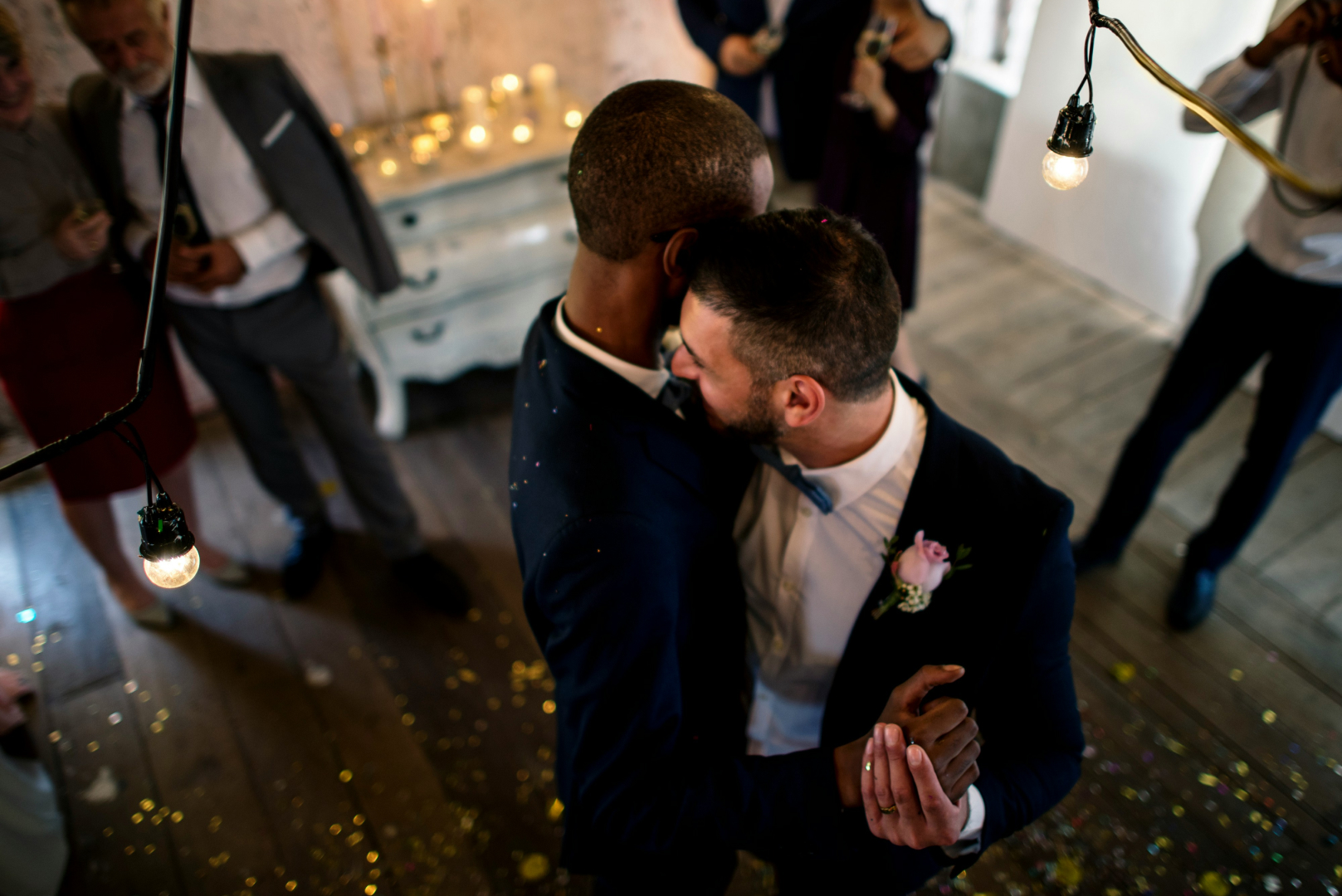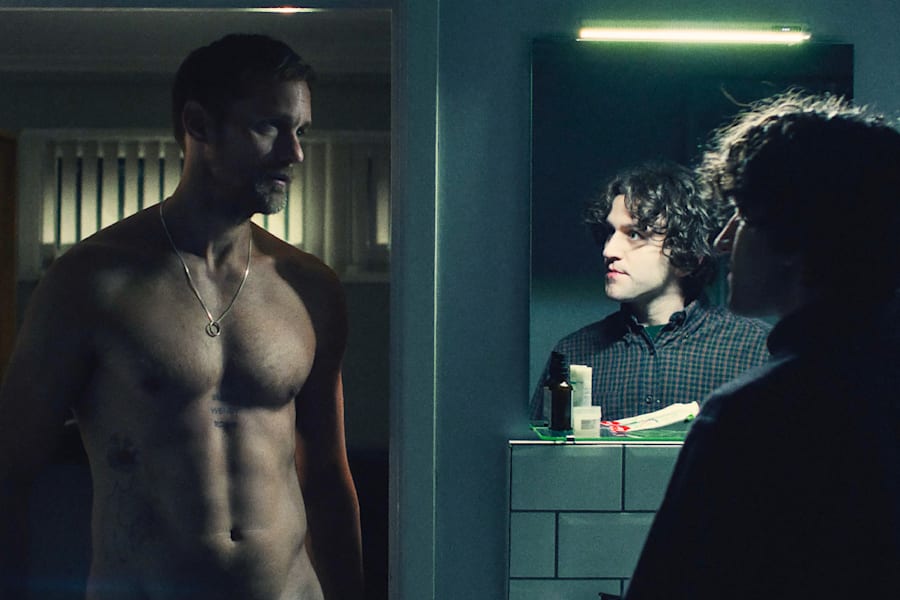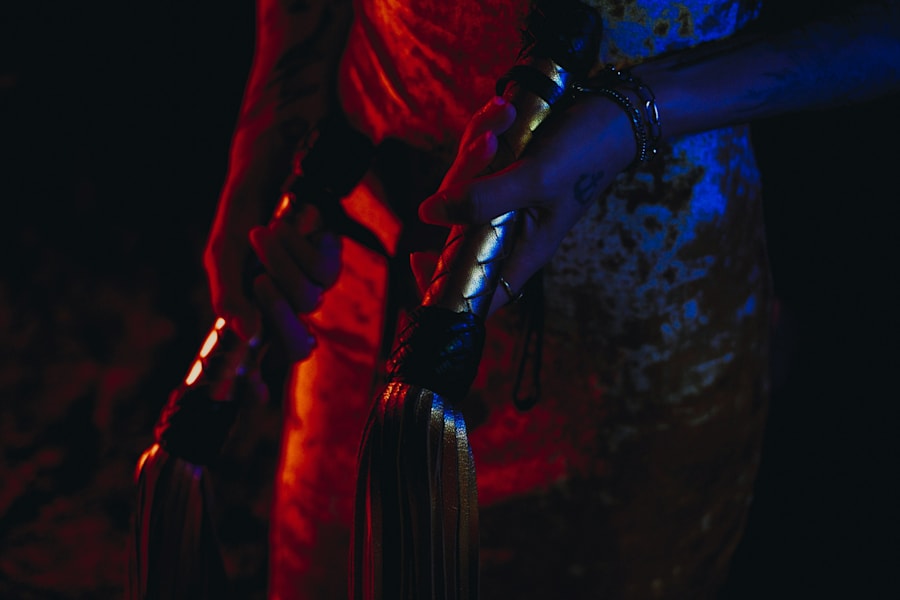Love Wins(?): A roundtable on 10 years of marriage equality

One decade after Obergefell v. Hodges—a ruling that now feels more precarious than ever—queer people share their perspectives on marriage, love, and “progress.”
On June 26, 2015, the United States Supreme Court legalized “same-sex” marriage with a landmark ruling on Obergefell v. Hodges. I was 22 years old at the time and in the midst of a break-up with my college boyfriend. Ten years later, I walked down the aisle in what was my first lesbian wedding—my own.
Many thousands of LGBTQ+ activists worked many thousands of hours to make it possible for my wife and I to get married. Likewise, right-wing activists worked equally hard to exclude queer people from the institution wholesale. In 2003, Massachusetts became the first state to legalize gay marriage; one year later, then-President George Bush came out in support of a constitutional amendment banning gay marriage. In California, meanwhile, the right was granted, then promptly rescinded, in 2008, thanks to Proposition 8. A patchwork set of laws, varying from state to state, was in place by 2013. Two years later, marriage equality was etched into law across the entire country. Thus, many couples said “I do” for the first time on June 26, 2015.
Not all queer people celebrated the ruling, however.
“Gay marriage is seen as the core of a new kind of privatized and personal endeavor—the rights of LGBT individuals to enter into a private contract,” Yasmin Nair wrote in a 2010 anthology titled Against Equality: Queer Critiques of Gay Marriage. “... When queers criticize the state’s emphasis on the normative family, we do so because we know only too well the violence of exclusion and because, for many of us, our identities as queer people have been marked and shaped, not always in unproductive ways, by that violence.”
Against Equality—both the anthology, and the group of the same name that produced it—reminds me, 10 years in, of the dangers of embracing a tidy progress narrative. Truly liberatory politics, they argue, have been abandoned in the name of neoliberal forms of inclusion, including, but not limited to, the right to get married. One decade after Obergefell, their critiques remain salient. Has the “assimilationist agenda” harmed us or helped us? What other perspectives has the supposedly linear history of “the road to marriage equality” forgotten or erased? These contradictions and disagreements are fundamental to queer history, culture, and activism in the United States, even if—or perhaps especially if— they remain elusive to mainstream renderings of Obergefell v. Hodges and its legacy.
Today, marriage equality feels no less precarious on its 10th anniversary than it did back in 2015. Renewed efforts to ban LGBTQ+ folks from the institution of marriage have surfaced. In August, news broke that the Supreme Court would hear its first official challenge to Obergefell v. Hodges courtesy of Kim Davis, the Kentucky county clerk who refused to issue a marriage license to a gay couple on religious grounds in the wake of the landmark ruling. She went to jail for six days back in 2015. Her lawyer is now calling Obergefell “legal fiction.”
Amid ongoing legal battles and the simultaneous onslaught of anti-trans legislation being introduced in state legislatures across the US, however, queer people are continuing—as they always have—to celebrate their love and partnership. In the spirit of this particular brand of resistance, I sat down with a handful of queer people in various states of romance—from dating to divorce and back again—to record their reflections, both personal and political, on the 10th anniversary of Obergefell v. Hodges.
Looking back, do you have any memories or reflections from the 2015 ruling, or beforehand?
“I remember generally feeling excited and hopeful. It's funny, 2015 was the year before everything started going downhill. So it felt really hopeful and exciting. I hadn't talked to my wife—or my girlfriend—about getting married at that point yet, but it was definitely on my radar.”—Meg Creamer
“I was 15 and I remember my parents were upset about it. They were not happy. And I wasn't surprised about my dad because he's always been very religious and comes from a very conservative family. But my mom had always had gay friends, and so I was really surprised that she considered it, like, an affront to God or something. I wasn't even aware of my own queerness at the time. But I was happy about it.”—Londyn Crenshaw
“Back when I got married in 2008 in California, that was when I went to a bunch of spontaneous weddings. In fact, for one, my boss at that time was getting married and I was filming it right when they stopped the marriages again. So that was a big deal. So, you know, it's never… you're never settled. You never think that this is gonna be forever.”—Anna Hauptmann
“I was working in the entertainment industry. My boss was a gay man who was already married. He got married in 2014. But the thing that I remember the most about that time, and it's so dumb, is that Dax Shepard and Kristen Bell finally got married because they said, Okay, now everyone can get married. And they just went down to city hall and did it and were just like, Boom, baby.”—Rachael Gilman

Do you think there was or is anything assimilationist about the fight for marriage equality?
“I think it's a real privilege to sit around and think that assimilation can't be negotiated with, or that we as LGBTQ identified people don't know what's good for us, or that we can't do it on our own terms.”—Sasha Goldberg
“I’ve definitely spent at least some time thinking about the question of, are you just participating within the confines of the thing that's oppressing you? But I've never felt like we were. I mean, I don't do anything I don't wanna do. It's my best and my worst quality.”—Gaby Javitt
“Saying that marriage at its core is heteronormative is only further subscribing to the Christian values that say it is, you know what I mean? Marriage can be whatever you want it to be. Marriage is just a legal thing, really.”—Londyn Crenshaw
How do you define “queer love”?
“It’s kind of cheesy at this point, but it's the truth: I think of authenticity, of truth. I feel really lucky to feel love for myself and for my partner, for my community. And I feel lucky to be a part of the queer community because we have this great opportunity, as hard as it is, to question a bunch of things that people just accept as normal.”—Hayley Rose Harrington
“It feels like family and it feels like kinship. And I would say that's true in our marriage as well, where it feels like there's a familial connection and a commitment to one another and building our life together.”—Gio
How do you feel about the future of queer love, or of the institution of queer marriage?
“For me, I think it's more that everyone deserves equal rights, period. And so anyone should be able to get married if they want to, period. If you wanna get married and divorced 30 times, go for it. That's your own prerogative.”—Meg Creamer
“I mean, I hope that marriage equality does not get overturned. That would be crazy. You know, I hear so many bad reasons for straight couples to get married. Not that the divorced gay people I know didn't have a good reason to break up.”—Rachael Gilman
“I would say that I wish, even now at 44, I wish that I had heard, learned, listened to, observed more discussions and content on marriage from LGBTQ people. I think it is really different from long-term relationships in all kinds of legal and non-legal ways. And in this political moment in particular, when we're again looking at probably going back to state by state, you know, these differences become really important.”—Sasha Goldberg
“I've been there, done that. It was a great time. I still get along with her. We had a child together, Skyler, who’s 14 now. And then when we got divorced, she got remarried a couple years later and they both have their own child now. And so we're just this big, blended, mixed family.”—Anna Hauptmann
“In some ways I feel less worried about queer love than I do about the institution or the ways that it's been institutionalized. But from a trans perspective, it is really connected to trying to maintain some control over my body and our bodies. Everything feels really bleak right now, but I also feel really confident in our community. Like, I feel a lot of despair and then I also am like, Oh, there's a lot of people around me who support me, support us, support our relationship.”—Gio


